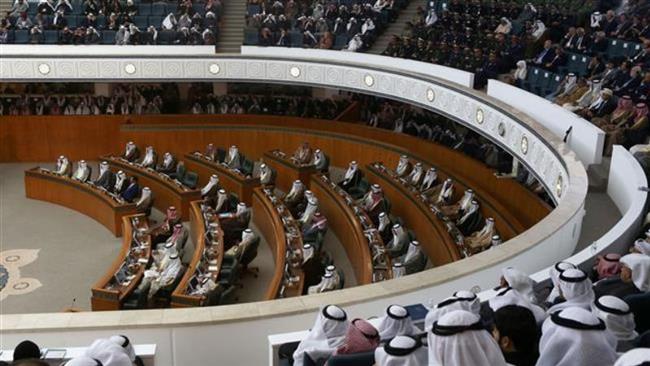
RNA - The draft legislation, submitted to parliament by lawmaker Waleed al-Tabtabai, well-known for his extremist views, stipulates a jail term of between 10 and 20 years for members of Hezbollah and anyone who shows any form of loyalty to the resistance movement.
It also proposes jail terms of up to five years for anyone displaying any symbol associated with the Lebanese resistance group.
The lawmaker also proposed that Hezbollah be classified a "terrorist organization."
The developments come after the Supreme Court in Kuwait last month convicted 21 Shia Muslims of forming a "terrorist cell" with ties to Hezbollah and plotting attacks in the Persian Gulf state.
Around a third of Kuwait's native population of 1.35 million are Shia Muslims.
In March, Kuwait revoked the residency visas of more than 60 Lebanese individuals over their alleged links with Hezbollah.
The move came after the Persian Gulf Cooperation Council (GCC), under the influence of the Saudi regime, branded Hezbollah a “terrorist” organization on March 2. Arab League foreign ministers, except those of Iraq and Lebanon, later followed suit.
The GCC — comprising Saudi Arabia, Qatar, the United Arab Emirates, Oman, Bahrain and Kuwait — however, did not provide any evidence for the accusation. The first three monarchies themselves stand accused of supporting extremists and terrorists in the region.
Hezbollah had earlier denounced the decision.
Saudi Arabia and its allies in the council have opposed Hezbollah’s presence in Syria and its assistance to the government of President Bashar al-Assad in the fight against Takfiri terrorists. Hezbollah says its aid to Assad is necessary to stop the spillover of violence into Lebanon.
Also in August 2015, Kuwait said it had busted a 26-member cell closely associated to Hezbollah.
Kuwaiti courts convicted members of the so-called “Abdali cell” of working for the resistance movement.
They received sentences ranging from a few years in prison to, in one case, the death penalty, though the latter sentence was later reduced to life imprisonment.
The defendants were later acquitted on appeals and set free. Kuwait’s Supreme Court, however, overturned their acquittal and sentenced them to between five and 15 years in prison.
847/940